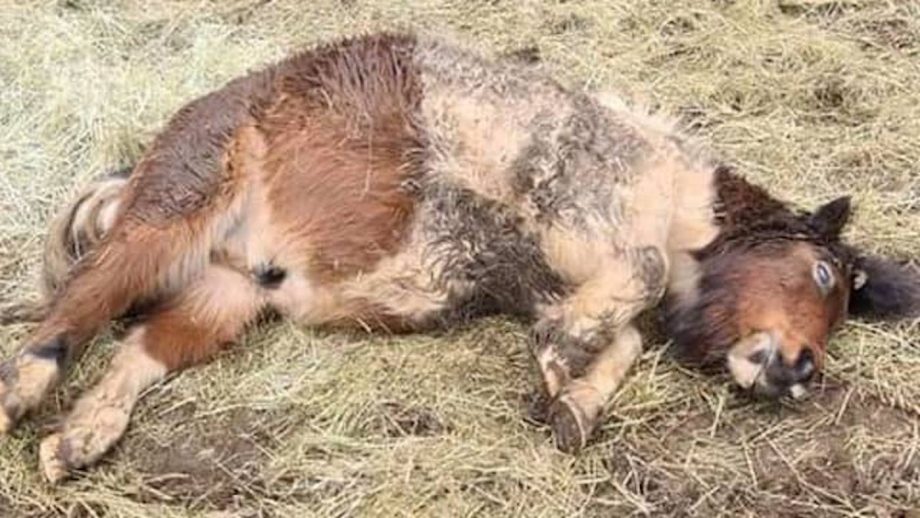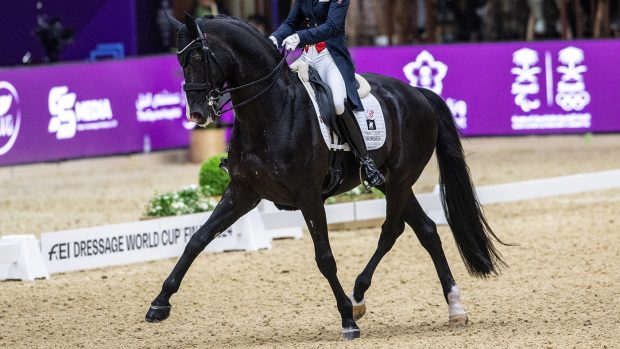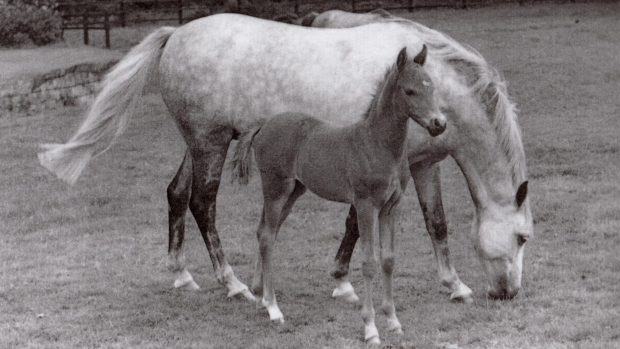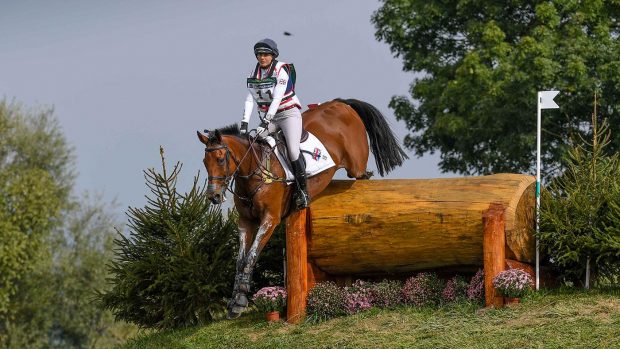An owner who had said her goodbyes to her horse, thinking he would not survive choke brought on by someone feeding him bread and cereal, wants to prevent anyone else suffering a similar experience.
Sarah Jennings’ eight-year-old part-bred Welsh gelding Pie was saved, thanks to an “amazing” vet and a “real team effort”, but Sarah knows things could have been far worse.
She told H&H she went to her field last Tuesday morning (13 July) with her six-year-old granddaughter Gracie to check Pie, her other horse Flynn and Gracie’s pony Buddy.
“I pulled up outside the gate and straight away noticed bread; what looked like the crusts of a bloomer, crumbs, and what looked like muesli and cereal,” she said. “It looked like someone had just emptied cereal packets over the fence.
“I cleared it up and threw it away, hoping the horses hadn’t seen it, went out into the field, and that’s when I saw Pie and thought ‘oh my god’.”
Pie was frothing from the nose and mouth, Sarah said, chewing and stretching his neck, and in distress.
Sarah called the vet, Albert Mestres Aldavo of Murrell Equine, who sedated Pie and tubed him, in an attempt to clear the blockage.
“It was awful,” Sarah said. “He did it about four times, Pie got a nosebleed, and we had to stop and give him [muscle relaxant] buscopan because his neck had got so tight where he was trying to shift the blockage himself. He had painkillers and the vet said we had to leave him, hoping he’d cleared some of it, and he’d come back in the morning.”
❤️UPDATE❤️ 22/07/21Pie’s story has made local news. So thrilled the issue of public feeding is being spoke about…
Posted by Sarah Jennings on Tuesday, July 13, 2021
Sarah spent that night checking Pie, who seemed better at midnight, but this may have been down to the medication he had had, as by 4am, his condition had worsened.
“It was horrendous,” Sarah said. “I got a call to say the vet was en route, and that we needed to talk about options. I said when Albert got here that if the tubing didn’t work, we couldn’t let him suffer because it was so awful, but he got out of the car with a steely determination, and said ‘I’m here to save your horse’.”
Albert tubed Pie again, with a smaller tube, and Sarah’s husband operated a pump to get as much water in as possible.
“It was so traumatic to see, all that water going in, and water and mucus coming out of his nose and mouth; you think ‘How is he still breathing?’” Sarah said.
“Then, after probably half an hour, Pie’s head went low and this explosion of blockage, bread and cereal, came flying out. We were encouraging him, flushing it again, and then Albert said ‘I’m in his stomach’. My husband was crying his eyes out and I was just elated; if it hadn’t been for Covid, I’d have jumped on the vet and given him a big hug!”
Albert warned of the risks of infection caused by possible inhalation of fluid, or the blockage material, into Pie’s lungs, and said any scarring of his gullet could mean he is more prone to choke in future. But a week on, having had antibiotics, painkillers and steroids, Pie is back to himself, other than being slightly headshy.
“We can’t thank the vet enough,” Sarah said. “He was absolutely amazing. We were in awe of him and I think it was that determination; we’re indebted to our supervet.”
Sarah put pictures and videos of Pie on Facebook to try to highlight to people that actions they see as kindness can have horrific consequences.
Her post has been shared 2,000 times, and been seen nearly 30,000 times. Sarah has also been interviewed by her local paper, in touch with councils that are spreading the word on social media, and spoken to local rural police teams, who will also help get the message out.
“I don’t harbour any hatred for the person who did it, because they didn’t know; I think it was lack of knowledge, not being malicious,” she said. “People don’t understand the issues they can cause, and I’m sure if they found out how it had affected the horses, they’d be absolutely mortified. Maybe people think horse owners are prissy in not wanting them fed, but come and talk to us and we’ll explain.”
With people now on summer holidays, and more likely to be in the countryside, Sarah has also put her message in local and mums’ social media groups. She would like to put posters in supermarkets, and is adding fencing so her own horses cannot access the gate, on which she plans to post pictures of Pie when he was ill, to hit the message home.
“I’ve had nothing but love and support,” she added. “I’ve had nearly 700 messages; about 400 from people who aren’t horsey, saying they never knew, and now they’re never going to feed horses again, which is really lovely. I won’t say that makes it worth it, because nothing would be worth going through that, but it’s so heartwarming to hear people saying ‘you’ve changed my mind’.”
Sarah added that she had recorded one more video, which she did not share.
“I was crying, saying to the person who had done it ‘I hope it was worth it’,” she said. “I’d said my goodbyes to him before the vet came, because I thought that was it.
“But thank god, I’ve got my boy back. I can’t bear the thought of anyone else or any other horse having to go through this when it was avoidable, but awareness is key, and knowledge is power, and now I’ve changed people’s minds — or Pie has.”
You might also be interested in…

Subscribe to Horse & Hound this spring for great savings

Pony fed raw potato by walkers suffocates within minutes
“Lightning gave me the impetus to get out of my wheelchair and walk again. I will always walk with a

Pony fed roast chicken dinner undergoes £5,500 colic surgery
I’ve had it said to my face by people, that it’s their enjoyment to feed my horses, and I’m spoiling
Horse & Hound magazine, out every Thursday, is packed with all the latest news and reports, as well as interviews, specials, nostalgia, vet and training advice. Find how you can enjoy the magazine delivered to your door every week, plus options to upgrade to access our H&H Plus online service which brings you breaking news as it happens as well as other benefits.





